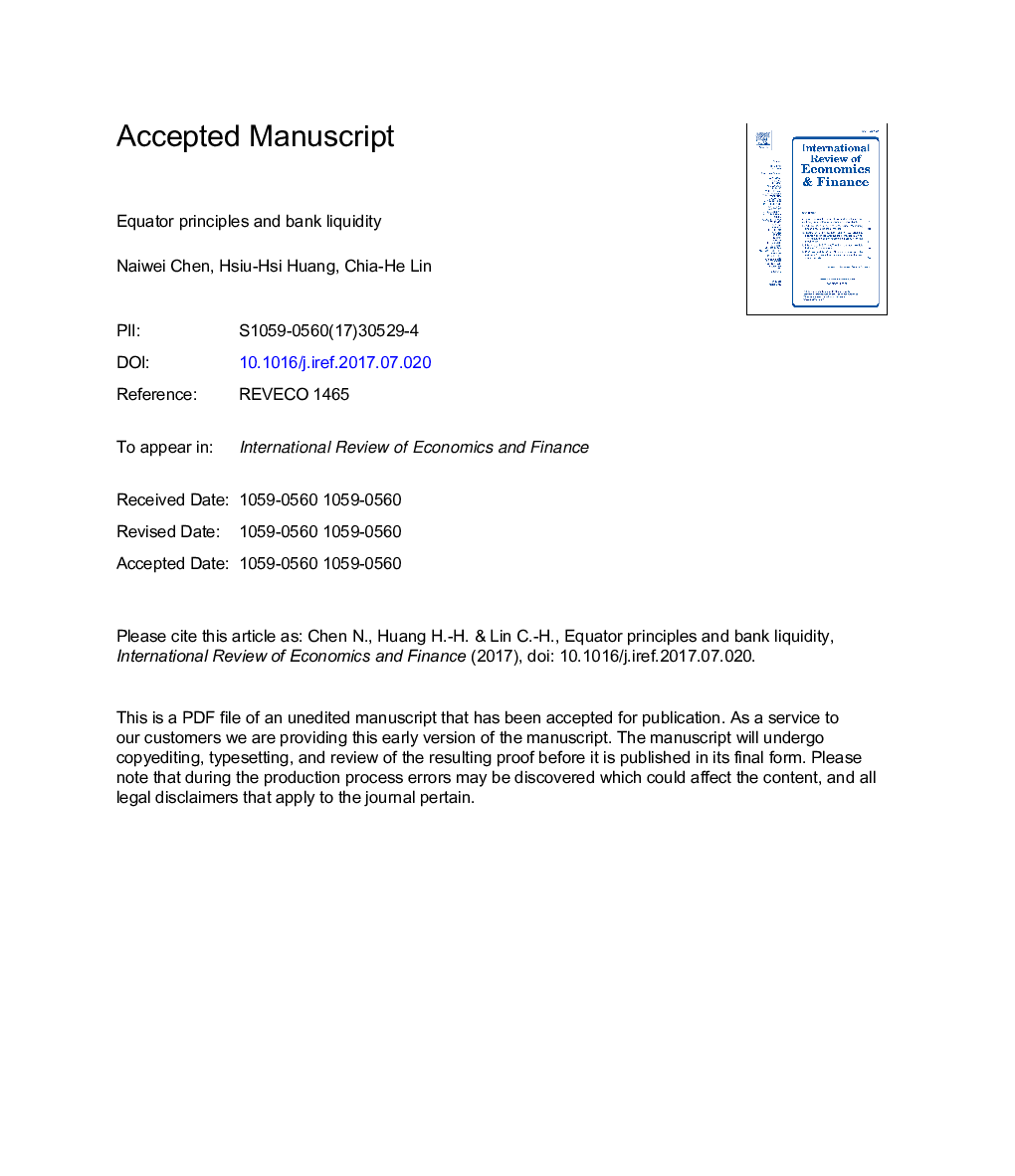| Article ID | Journal | Published Year | Pages | File Type |
|---|---|---|---|---|
| 7355432 | International Review of Economics & Finance | 2018 | 42 Pages |
Abstract
This study examines whether and how Equator Principles (EP) adoption has bearings on the liquidity of banks that engaged in project finance from 2003 to 2010. Results reveal that EP Financial Institutions (EPFIs) generally have higher liquidity than non-EPFIs and such a finding remains valid after controlling other variables. Moreover, bank regulations positively affect bank liquidity and such a positive effect is stronger for EP Financial Institutions (EPFIs) than for non-EPFIs. Results suggest that EPFIs hold more liquidity buffers likely because of the higher risks and costs that accompany the adoption of EP as well as more effective bank regulations for EPFIs as opposed to non-EPFIs. In addition, banks that plan to adopt EP in the future should increase their liquidity holdings after adopting EP. Furthermore, authorities concerned should encourage non-EPFIs to adopt EP or other eco-friendly measures so that bank regulations can increase liquidity more effectively.
Related Topics
Social Sciences and Humanities
Economics, Econometrics and Finance
Economics and Econometrics
Authors
Naiwei Chen, Hsiu-Hsi Huang, Chia-He Lin,
